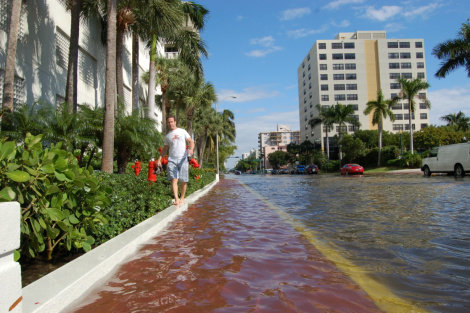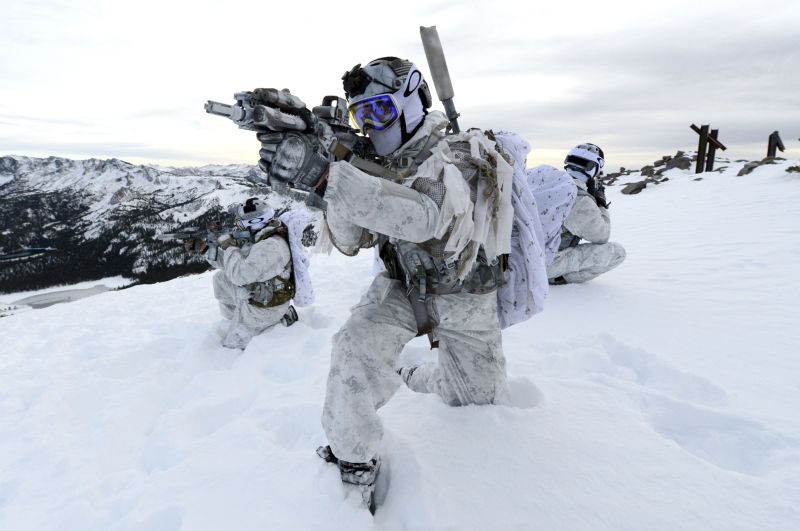Honoring #EarthDay, this is a glimpse into #ClimateChange impacts and the urgency of #ClimateAction.
Animal populations are crashing. The human population is growing. Resources are depleting. Temperatures are rising.
And Earth has been cutting us slack.
PLEASE read and RT. 1/
Animal populations are crashing. The human population is growing. Resources are depleting. Temperatures are rising.
And Earth has been cutting us slack.
PLEASE read and RT. 1/

Based on natural influences like solar output, orbital variations, and volcanic activity, our planet should be slowly cooling.
Instead, human emissions of greenhouse gases are warming the planet rapidly, despite nature continually fighting against us. 2/
academic.oup.com/bioscience/art…
Instead, human emissions of greenhouse gases are warming the planet rapidly, despite nature continually fighting against us. 2/
academic.oup.com/bioscience/art…
The Earth, like many systems, seeks equilibrium. When the balance is disturbed, the system tries to compensate.
As we emit more carbon dioxide (CO2), more plants grow, and oceans absorb more of the gas.
These reactions are called negative feedbacks. 3/
nasa.gov/feature/greeni…
As we emit more carbon dioxide (CO2), more plants grow, and oceans absorb more of the gas.
These reactions are called negative feedbacks. 3/
nasa.gov/feature/greeni…
But these feedbacks have limits and consequences.
Plant growth is limited by water and nutrient avaialbility.
And deforestation, primarily for agriculture, is the second largest source of human greenhouse gases behind fossil fuel combustion. 4/
theguardian.com/environment/20…
Plant growth is limited by water and nutrient avaialbility.
And deforestation, primarily for agriculture, is the second largest source of human greenhouse gases behind fossil fuel combustion. 4/
theguardian.com/environment/20…
And consider the bark beetle.
While hardly new, warmer temperatures are enabling these tiny insects to survive winters, multiply, and kill millions of acres of forest around the world, making these forests a carbon source and more susceptible to fires. 5/
e360.yale.edu/features/small…

While hardly new, warmer temperatures are enabling these tiny insects to survive winters, multiply, and kill millions of acres of forest around the world, making these forests a carbon source and more susceptible to fires. 5/
e360.yale.edu/features/small…


Meanwhile, the oceans absorb close to 30% of all human CO2 emissions.
Ocean currents would normally circulate this excess to deeper waters. But this process can take hundreds of years, and studies are finding changes in the speeds of these currents. 6/
washingtonpost.com/climate-enviro…
Ocean currents would normally circulate this excess to deeper waters. But this process can take hundreds of years, and studies are finding changes in the speeds of these currents. 6/
washingtonpost.com/climate-enviro…

This excess CO2 has caused global surface waters to become 30% more acidic, impacting shell-creating sea life, causing their shells to dissolve.
This includes tiny animals called pteropods, threatening the foundation of many entire ocean food chains. 7/
noaa.gov/education/reso…
This includes tiny animals called pteropods, threatening the foundation of many entire ocean food chains. 7/
noaa.gov/education/reso…

The oceans also absorb immense amounts of heat. More than 90% of the warming over the last 50 years has occurred in the ocean.
However, these warmer oceans fuel stronger storms, threaten sea life, and contribute to accelerating glacial ice melt. 8/
climate.nasa.gov/news/3062/warm…

However, these warmer oceans fuel stronger storms, threaten sea life, and contribute to accelerating glacial ice melt. 8/
climate.nasa.gov/news/3062/warm…


Increased ocean acidity and warmer waters also impact coral reefs, which sustain 25% of all ocean life.
Facing increased acidity, warming waters, fishing damage, pollution, and more, up to 50% of the world's reefs have died in just the last 30 years. 9/
pbs.org/wnet/nature/bl…
Facing increased acidity, warming waters, fishing damage, pollution, and more, up to 50% of the world's reefs have died in just the last 30 years. 9/
pbs.org/wnet/nature/bl…

On land, habitat destruction, pesticides, climate change, disease, and more have driven a steep decline in pollinator populations, like bees, butterflies, bats, and beetles.
Over 100 crops grown in the U.S. alone depend on such natural pollinators. 10/
theguardian.com/environment/20…

Over 100 crops grown in the U.S. alone depend on such natural pollinators. 10/
theguardian.com/environment/20…


Illegal wildlife trade, poaching, and habitat destruction have driven many other species like pangolins, elephants, and rhinos to the brink of extinction.
And the removal of apex predators, like wolves, can completely transform entire ecosystems. 11/
yellowstonepark.com/things-to-do/w…



And the removal of apex predators, like wolves, can completely transform entire ecosystems. 11/
yellowstonepark.com/things-to-do/w…




With dying reefs, warming and more acidic waters, pollution and massive overfishing, some fish populations have declined by 70% or more.
This is a growing problem for approximately 3 billion people who rely on seafood as a primary source of protein. 12/
scientificamerican.com/article/ocean-…
This is a growing problem for approximately 3 billion people who rely on seafood as a primary source of protein. 12/
scientificamerican.com/article/ocean-…

And massive amounts of sealife caught via industrial methods is considered unwanted "bycatch" and discarded, dead, back into the ocean.
Finning, where an animal's fins are removed and it is thrown back alive to suffocate, kills an estimated 73 million sharks every year. 13/



Finning, where an animal's fins are removed and it is thrown back alive to suffocate, kills an estimated 73 million sharks every year. 13/




In addition to melting glacial ice, warming ocean waters expand.
Both lead to global sea level rise.
Cities like Miami now deal with "sunny day floods" where tides bring ocean waters well into the city streets. Seawater intrusion is also creating coastal "ghost forests". 14/


Both lead to global sea level rise.
Cities like Miami now deal with "sunny day floods" where tides bring ocean waters well into the city streets. Seawater intrusion is also creating coastal "ghost forests". 14/



The increased heat, both in the oceans and the atmosphere, is causing glaciers to retreat and shrink worldwide.
Nearly 2 billion people rely on glacial meltwater from the Himalayas alone for drinking, crops, and power. 15/
globalcitizen.org/en/content/him…
Nearly 2 billion people rely on glacial meltwater from the Himalayas alone for drinking, crops, and power. 15/
globalcitizen.org/en/content/him…

Atmospheric changes and shrinking Arctic ice are also disrupting the jet stream, causing severe weather events like droughts, floods and even freezes.
The recent freeze in Texas due to a dip in the jet stream resulted in a deadly statewide power loss. 16/
cbsnews.com/news/texas-pow…
The recent freeze in Texas due to a dip in the jet stream resulted in a deadly statewide power loss. 16/
cbsnews.com/news/texas-pow…
As weather patterns are disrupted and consumption increases, water availability becomes less assured.
States in the western U.S. face water and power shortages as snowmelt from the Rockies becomes less reliable, leading to historic lows in reservoirs. 17/
abcnews.go.com/Technology/wir…
States in the western U.S. face water and power shortages as snowmelt from the Rockies becomes less reliable, leading to historic lows in reservoirs. 17/
abcnews.go.com/Technology/wir…
And with surface waters less predictable and a growing population, dependence on underground aquifers for water and farming increases.
Aquifer depletion results in deeper wells, higher costs, lower water quality, crop failures, and surface collapses. 18/
pnas.org/content/109/24…

Aquifer depletion results in deeper wells, higher costs, lower water quality, crop failures, and surface collapses. 18/
pnas.org/content/109/24…


As the air warms it holds more water vapor, which is also a greenhouse gas.
With more atmospheric water, rains and snows can come in torrents, in record-setting blizzards and floods, often too much, too fast to recharge groundwater supplies. 19/
insideclimatenews.org/news/06052017/…

With more atmospheric water, rains and snows can come in torrents, in record-setting blizzards and floods, often too much, too fast to recharge groundwater supplies. 19/
insideclimatenews.org/news/06052017/…


The global population is expected to reach nearly 10 billion, growing the fastest in poorer nations.
More people with fewer resources increases migration and border stress.
And the melting Arctic is creating tensions over territory and trade routes. 20/
defensenews.com/pentagon/2021/…

More people with fewer resources increases migration and border stress.
And the melting Arctic is creating tensions over territory and trade routes. 20/
defensenews.com/pentagon/2021/…


The inability of governments to quickly respond to severe weather events also presents opportunities for extremist groups to provide aid while recruiting to their causes.
Such situations increase national security concerns around the globe. 21/
reuters.com/article/us-pak…

Such situations increase national security concerns around the globe. 21/
reuters.com/article/us-pak…


While the global ecosystem has been fighting against our CO2 emissions, it can also reinforce them.
Permafrost is the name for "permanently frozen ground". Buildings, roads, and pipelines are built on it throughout the Arctic.
It is now thawing. 22/
e360.yale.edu/features/how-m…
Permafrost is the name for "permanently frozen ground". Buildings, roads, and pipelines are built on it throughout the Arctic.
It is now thawing. 22/
e360.yale.edu/features/how-m…
And, as permafrost thaws, it releases methane, a very potent greenhouse gas, along with CO2, much of which has been trapped for centuries.
It is estimated that this permafrost contains 2.5 times the amount of carbon that is already in the atmosphere. 23/
nationalacademies.org/news/2020/05/w…
It is estimated that this permafrost contains 2.5 times the amount of carbon that is already in the atmosphere. 23/
nationalacademies.org/news/2020/05/w…

Change is occurring and will continue even if emissions stopped today.
Atmospheric CO2 can remain elevated for centuries with temperatures continuing to warm and seas to rise
The longer we wait, the larger the impacts.
We have to choose our future.
/24
climate.nasa.gov
Atmospheric CO2 can remain elevated for centuries with temperatures continuing to warm and seas to rise
The longer we wait, the larger the impacts.
We have to choose our future.
/24
climate.nasa.gov
@threadreaderapp Unroll
• • •
Missing some Tweet in this thread? You can try to
force a refresh








